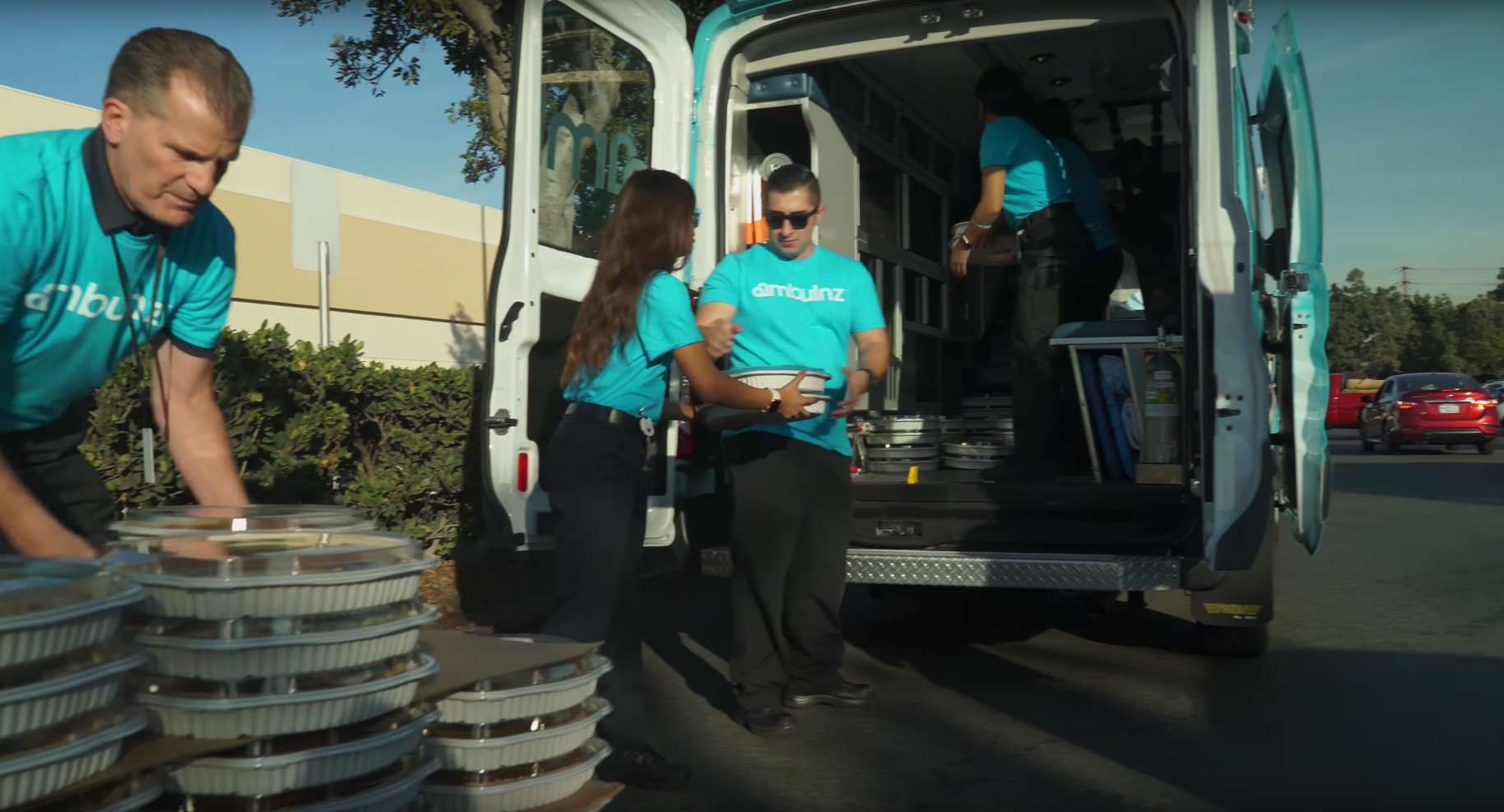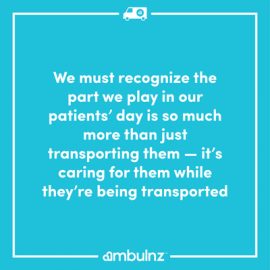By: Stan Vashovsky, Ambulnz CEO
As we’ve created Ambulnz from the ground up this year, I thought a lot about the kind of company I want us to be, and I always came back to one overriding thought: we need to become united as a company – and as an industry – around a culture of care.
Simply stating this as a goal, however, is not enough. Corporate culture is something that requires careful nurturing, a singular vision around which employees can rally, a strong sense of accountability to ensure we are holding ourselves to the proper standards, and measurable outcomes so we can assess progress.
From my perspective, creating a strong corporate culture is as fundamental to a new venture as product development, marketing, financial management or any other business function. Many early stage companies have taken a different view, preferring to focus instead on getting their product or service into the market before focusing on corporate culture or turning their attention to it only after growing to a certain size.
I believe this is a mistake and could even impair the growth and success of companies. This is especially true when a company is creating a new market category or transforming an existing industry.
Take Zappos as an example. As an e-commerce company, one could argue it is doing nothing fundamentally different than the thousands of other web sites selling shoes and clothing.
What has made Zappos special, however, is the corporate culture that CEO Tony Hsieh was so laser focused on creating from the company’s earliest days, and which manifested itself in a customer experience that is second to none.
Hsieh obsessed about the “science of happiness” and how to create a work environment that employees found fulfilling and empowering. The company provided employees with the freedom to do whatever it took to make the customer happy, even if that meant finding something for the customer on a competing web site when Zappos did not carry the desired product.
For Zappos, corporate culture is not just a message to employees, it is one of the key differentiators for the business. Zappos combines a relentless use of innovation, stellar customer
service and a staff of believers to fundamentally change expectations for the online shopper’s customer experience.
The medical transportation industry is hungry for the same approach. There is a both a practical
and emotional resistance to changing the status quo among existing ambulance companies, leaving EMTs to operate within cultures that lack vision, stifle entrepreneurism and inhibit sustainable careers.
So, what does a culture of care mean in the medical transportation industry?
Primarily, it means we must become partners in patient care with the caregivers who are our direct customers. It also means that this philosophy has to be embodied from top to bottom in the organization, including EMTs, dispatchers, operations staff and senior executives.
We must recognize the part we play in our patients’ day is so much more than just transporting
them — it’s caring for them while they’re being transported, whether that’s EMTs providing medical treatment and comfort, dispatchers providing ETAs and updates, or technologists and other staff providing the infrastructure needed to operate efficiently.
As an industry, we must unite all these stakeholders by creating and living shared values and leveraging unique strengths, especially those of the EMTs who are so passionate about providing quality patient care and building sustainable careers in the ambulance service.
This is how we will create a “virtuous circle” of employees, caregivers and patients who all benefit from a vastly improved medical transportation experience – driven by innovation, stellar service and a staff of believers, which should sound familiar because it’s how I described the Zappos strategy earlier.
I believe if we lead with care – as individual companies and as an industry – we can reach any goal we aspire to and fundamentally transform ambulance services to change expectations for EMTs, caregivers and patients – just as Zappos did for online shoppers.






